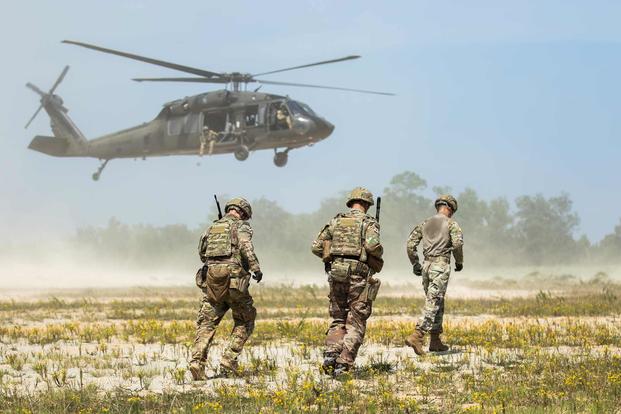
By Wang Yi and Li Ruijing
Some units from the US Army’s1st Security Force Assistance Brigade (SFAB) will be deployed to Africa to replace elements of an infantry brigade from the 101st Airborne Division, the Pentagon announced recently.
There were words in late 2019 that the US plans to pull its troops out of Africa, which met vehement responses from some countries. The newly-announced rotation not only declared that the US will maintain its military presence in Africa, but also signaled a major change in its anti-terror strategy in the region prompted by far-reaching strategic considerations.
First of all, Washington still has to maintain its military presence in Africa. Upholding the “America First” policy, the Trump administration has differentiated itself from its predecessors by pulling back of a number of international organizations and withdrawing troops from many regions. Therefore, many took the news about the US planning to withdraw troops from Africa as another “Trump-style” move. After all, the country is experiencing the most extensive strategic contraction since the Vietnam War. It even wants to clear out of the Middle East, let alone Africa.
Nevertheless, the ultimate goal of power wrestling is the scramble for resources, including geopolitical edge. The US remains the only superpower in the current world despite the strategic contraction, which, by the way, will be a long process that may not be all-rounded and with possible reversion. At the moment, Washington still has the ability to choose not to “contract” in certain regions, Africa being one of them.
The US’s hegemonic actions in the Middle East have to some extent hurt its international reputation, but its counter-terrorist operations in Africa are welcomed by certain countries. While the superpower is up against Iran, Syria, Russia and other countries in the Middle East, its enemies in Africa are roving terrorists. So, the US is able to maintain geopolitical influence in the region through relative low-cost assistance and guidance. The US Army’s1st SFAB to deploy to Africa this time is a new force responsible for training and advising missions in African countries.
Besides, the “rotation instead of withdrawal” demonstrated the adjustment of its security strategy in Africa. According to the US National Defense Strategy, major-power competition will replace counter terrorism to be the top concern in the US national security. As far as its global strategy is concerned, the vast African continent with huge potential is a land it will surely fight against other major powers.
It’s foreseeable that deployment of the 1st SFAB means the Pentagon will implement a more flexible anti-terror strategy in Africa. On the surface, it will pull back from the front line of anti-terrorism in order to reduce its combat pressure and casualties and honor Trump’s campaign commitments. But on a deeper level, the Pentagon will deepen its military cooperation with some African countries by training their militaries, and there may be a day when African troops will use the US weapons and equipment and follow the US combat standards, which will enhance the US’s influence in the region and keep local countries from siding with its competitors for economic benefits. The Pentagon stressed in the recent statement that the SFAB to deploy to Africa soon will be part of the efforts to contend with other major powers.
The new adjustment of the US troops stationed in Africa showed that Washington tries to play the security card to win over African countries at the minimal cost and turn the continent into a new “battlefield” of major-country contention, a move calling for alert of the international community.













